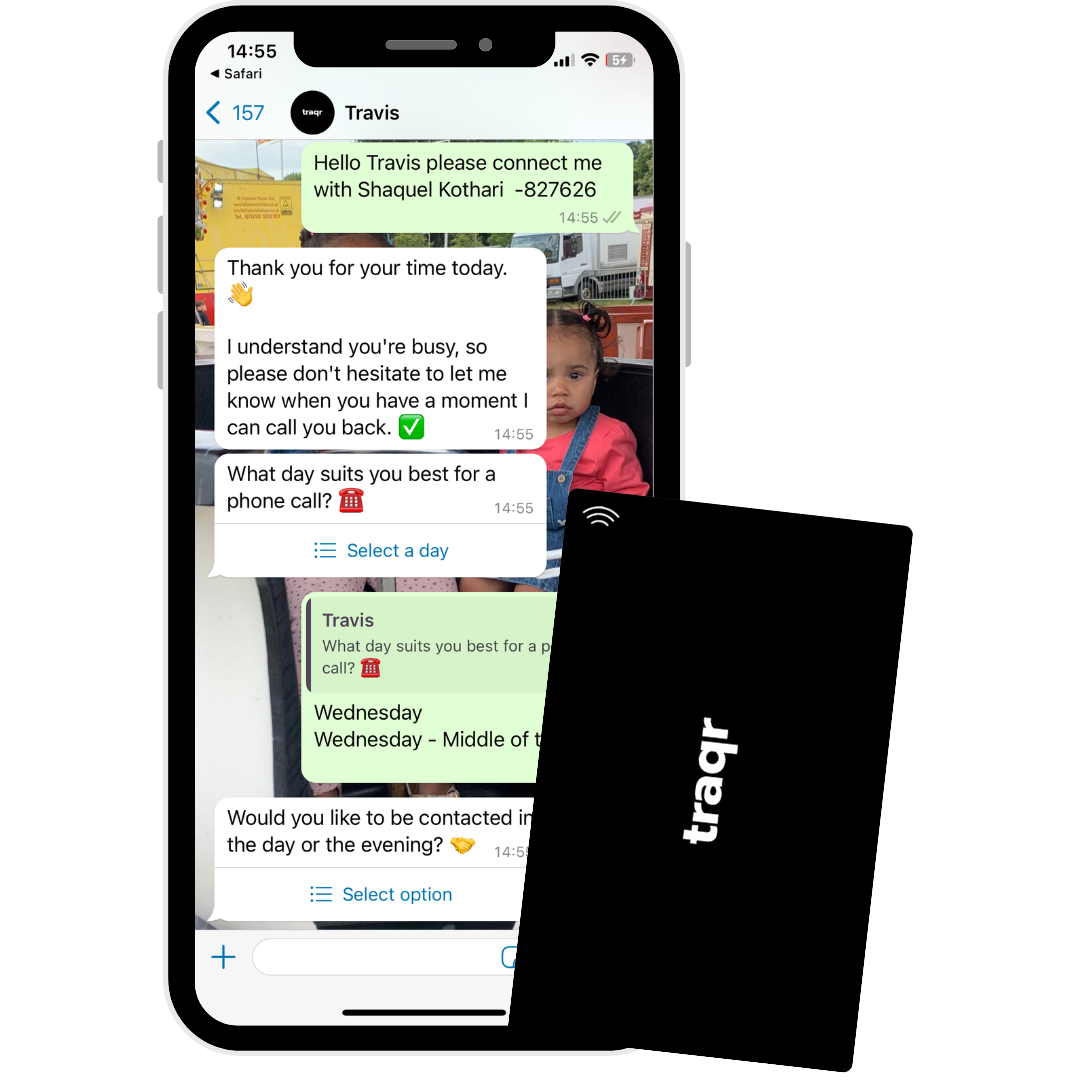Tutorial
 By shaquel Kothari • Updated 5th Nov 2024
By shaquel Kothari • Updated 5th Nov 2024
The API returns data in JSON format, containing an array of objects. Each object represents a contact with the following properties:
Code Examples:
1. Ruby:
2. PHP:
3. C++ (using cURL library):
4. Javascript:
Travis API Documentation | Traqr
Explore the Traqr API to effortlessly integrate Traqr’s powerful tracking and engagement tools with your CRM.
Our API documentation provides comprehensive guides and examples, enabling seamless data syncing for customer interactions, engagement tracking, and analytics into your existing systems. With Traqr's API, you can optimize workflows, gather actionable insights, and unlock the full potential of your customer engagement.
https://traqr.co.uk/api-call-travis?api_key=YOUR_API_KEY
Replace YOUR_API_KEY with your actual API key obtained from the Traqr platform.

Travis API key inside your account
Response:

Response:
The API returns data in JSON format, containing an array of objects. Each object represents a contact with the following properties:
- id: Unique identifier for the contact (integer)
- phone_number: Contact's phone number (string)
- profile_name: Contact's name (string)
- day: Preferred callback day (string)
- time: Preferred callback time (string)
- client_message: Message sent by the contact (string)
[
{
"id": 324241,
"phone_number": "whatsapp:+4700000000",
"profile_name": "Tom Wayne",
"day": "Monday",
"time": "Morning",
"client_message": "I'm interested in getting a social media manager"
},
{
"id": 1322131,
"phone_number": "whatsapp:+4470000000",
"profile_name": "Steve Manson",
"day": "Monday",
"time": "Morning",
"client_message": null
},
{
"id": 323433213,
"phone_number": "whatsapp:+447700000000",
"profile_name": "Craig",
"day": "Monday",
"time": "Afternoon",
"client_message": "Please call me around 2pm"
}
]Code Examples:
1. Ruby:
Rubyrequire 'net/http'
require 'uri'
require 'json'
# Replace with your API key
api_key = 'YOUR_API_KEY'
url = URI("https://traqr.co.uk/api-call-travis?api_key=#{api_key}")
req = Net::HTTP::Get.new(url)
res = Net::HTTP.start(url.host, url.port, use_ssl: true) { |http|
http.request(req)
}
if res.is_a?(Net::HTTPSuccess)
data = JSON.parse(res.body)
puts data
else
puts "Error: #{res.code}"
end2. PHP:
PHP<?php
$apiKey = 'YOUR_API_KEY';
$url = "https://traqr.co.uk/api-call-travis?api_key=" . $apiKey;
$ch = curl_init($url);
curl_setopt($ch, CURLOPT_RETURNTRANSFER, true);
curl_setopt($ch, CURLOPT_SSL_VERIFYPEER, false);
$response = curl_exec($ch);
if (curl_errno($ch)) {
echo "Error: " . curl_error($ch);
} else {
$data = json_decode($response, true);
print_r($data);
}
curl_close($ch);3. C++ (using cURL library):
C++#include <iostream> #include <curl/curl.h> #include <jsoncpp/json.h> #define API_URL "https://traqr.co.uk/api-call-travis?api_key=" int main() { CURL *curl; CURLcode res; std::string apiKey = "YOUR_API_KEY"; std::string url = API_URL + apiKey; std::string response; curl = curl_easy_init(); if (curl) { curl_easy_setopt(curl, CURLOPT_URL, url.c_str()); curl_easy_setopt(curl, CURLOPT_SSL_VERIFYPEER, 0L); curl_easy_setopt(curl, CURLOPT_WRITEFUNCTION, WriteCallback); curl_easy_setopt(curl, CURLOPT_WRITEDATA, &response); res = curl_easy_perform(curl); if (res != CURLE_OK) { std::cerr << "curl_easy_perform() failed: " << curl_easy_strerror(res) << std::endl; } else { Json::Reader reader; Json::Value root; if (reader.parse(response, root)) { std::cout << root << std::endl; } else { std::cerr << "Failed to parse JSON response" << std::endl; } } curl_easy_cleanup(curl); } return 0; } size_t WriteCallback(char *ptr, size_t size, size_t nmemb, void *userdata) { std::string *str = (std::string*)userdata; str->append(ptr, size * nmemb); return size * nmemb;
4. Javascript:
JavaScript// Replace with your API key
const apiKey = 'YOUR_API_KEY';
// Construct the API URL
const url = `${API_URL}${apiKey}`;
// Fetch data using async/await
async function getContacts() {
try {
const response = await fetch(url);
if (!response.ok) {
throw new Error(`API call failed with status ${response.status}`);
}
const data = await response.json();
console.log(data);
} catch (error) {
console.error(error);
}
}
// Call the function to retrieve contacts
getContacts();